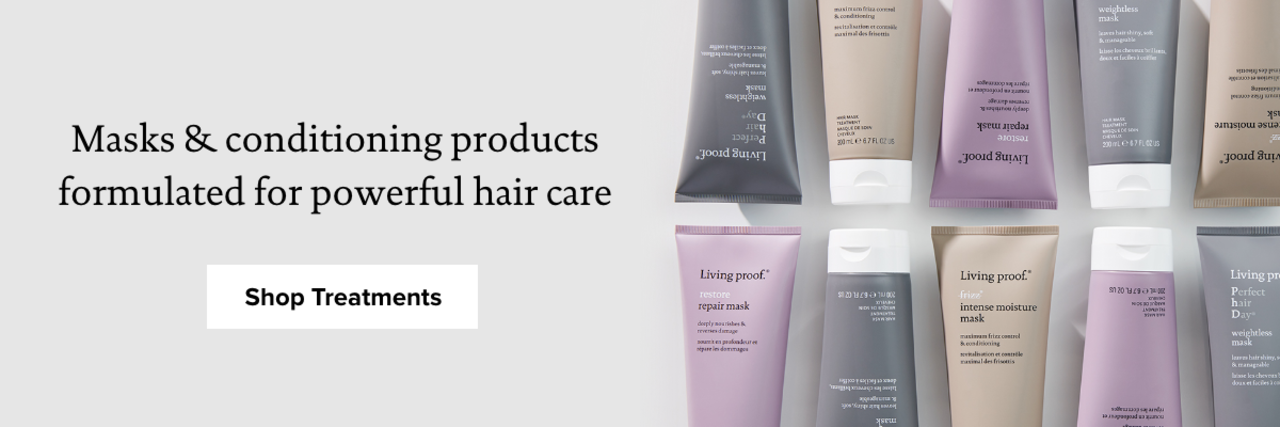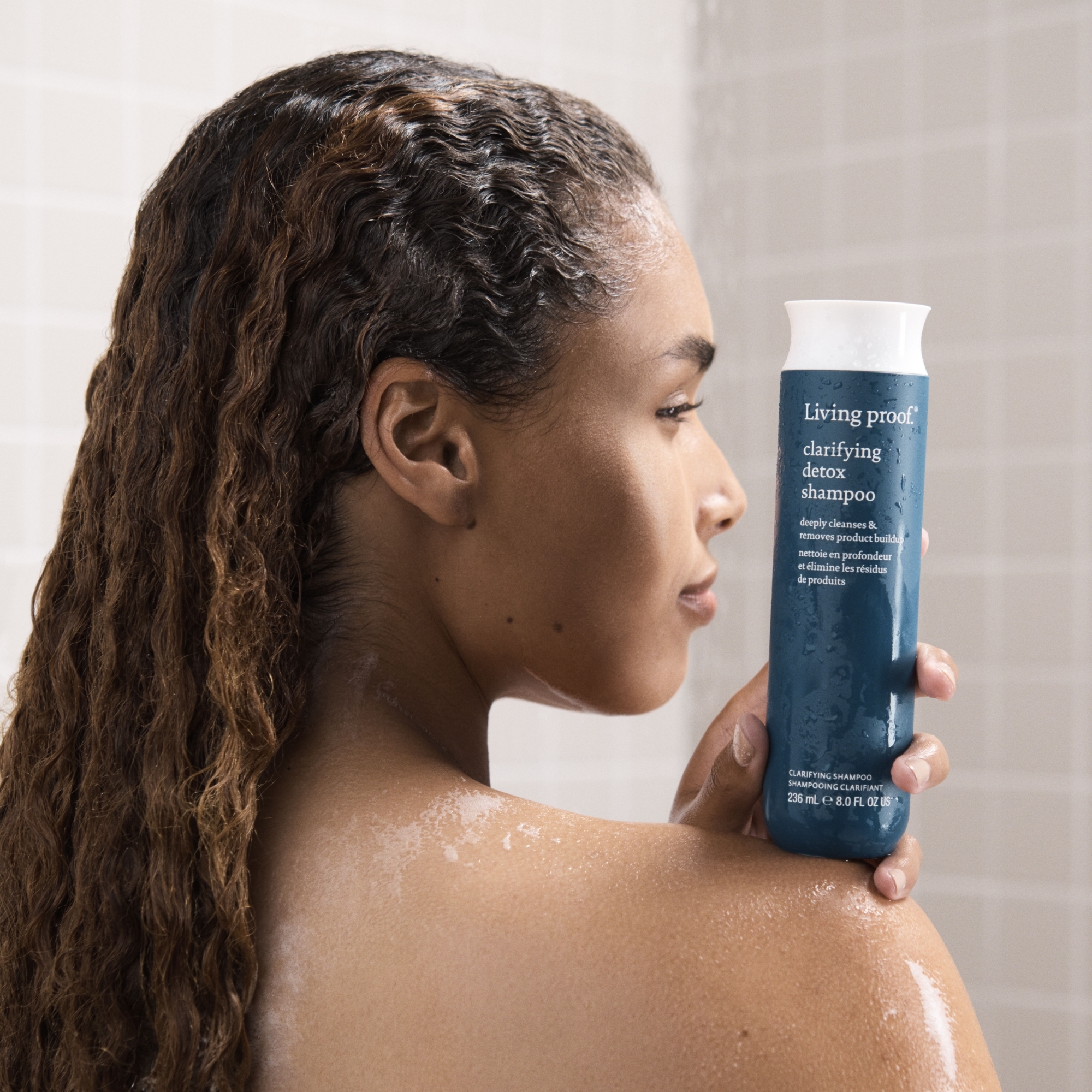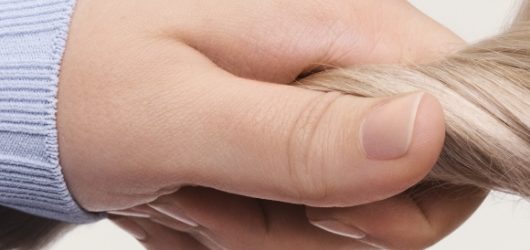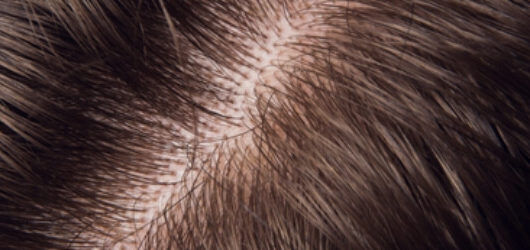
6 Ways To Keep Your Scalp Moisturized
The foundation of healthy, beautiful hair lies in maintaining optimal scalp health. In fact, a study featured in the International Journal of Trichology states that “there is a wealth of observational data on specific dermatological conditions of the scalp providing evidence for the role of the scalp condition in supporting the production of healthy hair.”
At Living Proof, we’re dedicated to providing science-backed haircare solutions that address the unique needs of your hair, and that includes your scalp! Moisturizing the scalp is crucial in preventing dryness, flakiness, and irritation, which can impact your hair’s overall health and appearance.
Understanding the various causes of dry scalp and recognizing the signs that your scalp may require additional attention is essential for promoting a well-balanced environment for hair growth. With the right approach to moisturizing and maintaining hydration levels, you can ensure your scalp remains nourished and your hair stays strong and vibrant.
Immerse yourself in the world of scalp care, as we guide you through the critical steps to achieving a hydrated, healthy scalp that nurtures healthy hair. Read on to learn the unmistakable signs of dry scalp and uncover the best practices and remedies for maintaining lasting moisture and hair vitality.
What causes dry scalp?
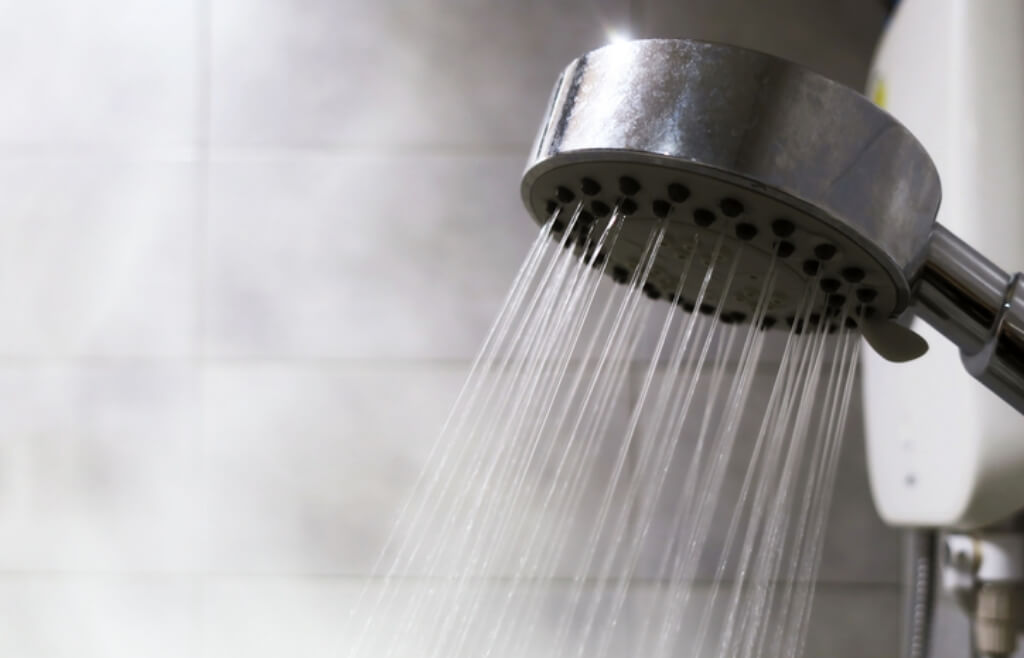
Dry scalp is a common condition characterized by skin flaking, itching, and irritation on the scalp. It can be caused by various factors, and understanding the root cause — no pun intended — is essential for finding the right treatment and prevention methods.
Some of the most common causes of dry scalp include:
- Microbiome imbalance — The scalp’s microbiome consists of various microorganisms, including yeast and bacteria, which play a crucial role in maintaining a favorable setting for hair growth. An imbalance in the scalp’s microbiome can lead to dryness and irritation. Living Proof’s Dry Scalp Treatment utilizes a vitamin B3-based microbiome balancing complex that rebalances the scalp’s natural ecosystem for long-lasting relief.
- Cold weather and indoor heating — Cold temperatures can cause the scalp to become dry and irritated, and indoor heating during colder months can exacerbate the issue by removing moisture from the air.
- Hot showers — Exposure to hot water can strip the scalp of its natural oils, leading to dryness and flakiness. Try using lukewarm water when washing your hair to minimize this risk.
- Harsh shampoos — Shampoos containing strong detergents or irritants can strip the scalp of its natural oils and disrupt the moisture balance. Opt for gentle, sulfate-free shampoos to help mitigate the issue.
- Excessive heat styling — Frequent use of heat styling tools, particularly blow dryers, can contribute to a dry scalp. To minimize the impact, use heat protectants and avoid excessive blow-drying.
- Genetics — Some individuals may be predisposed to dry scalp due to their genetic makeup. In such cases, maintaining a consistent and targeted haircare routine can help alleviate symptoms and prevent further scalp issues.
- Nutritional deficiency — A well-balanced diet is essential for overall health, including hair and scalp health. However, even individuals with seemingly healthy diets may experience nutritional deficiencies due to underlying conditions.
- Inflammatory diseases — Dry scalp can also be a symptom of underlying inflammatory diseases, such as psoriasis and eczema. These conditions can cause the scalp to become dry, itchy, and inflamed. If you suspect that your dry scalp is related to an inflammatory disease — or if the problem is severe and persists despite your efforts — it is important to consult with a healthcare professional for proper diagnosis and treatment.
6 signs you have dry scalp
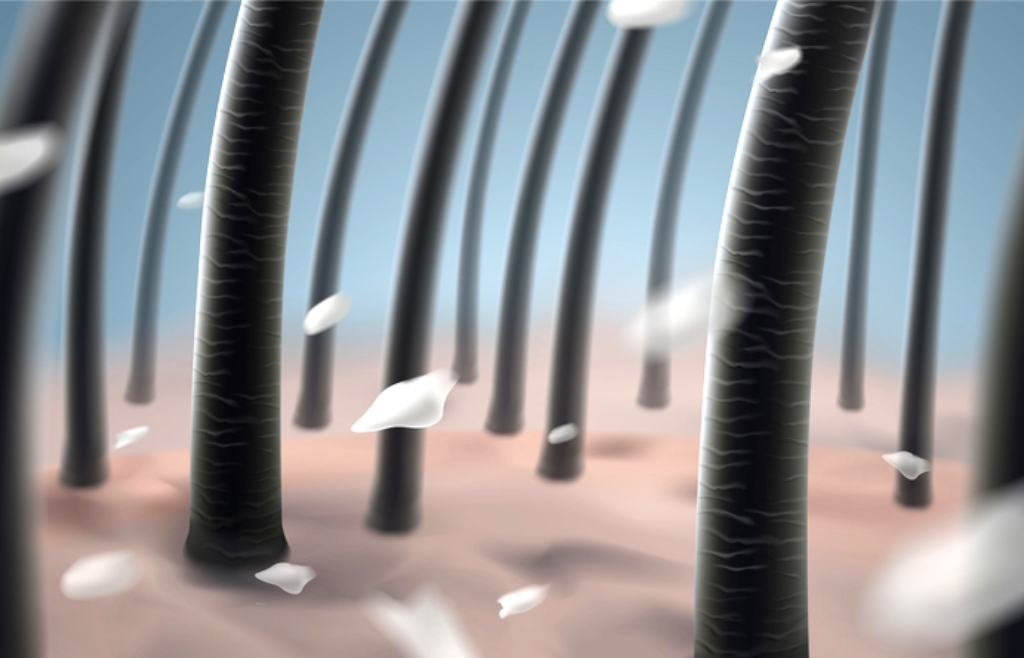
Recognizing the symptoms of dry scalp is essential for taking appropriate action and restoring your scalp to optimal health. Here are the top indicators that you may be experiencing dry scalp.
- Frequent itchiness — Persistent itching can be a telltale sign of dry scalp, often caused by a lack of moisture and the resulting irritation.
- Redness — Inflammation and irritation from dry scalp can lead to visible redness in the affected areas.
- Flakiness — Dry scalp often manifests as small, white flakes on the scalp or in your hair, which are a result of the skin shedding.
- Tight or uncomfortable feeling — A sensation of tightness or discomfort in your scalp can be a sign that it lacks adequate moisture.
- Dry hair — Dry scalp can also impact the health of your hair, resulting in brittle, dry strands.
- Time of year — Dry scalp is more likely to occur during colder and drier seasons, such as winter in the US, due to reduced humidity and increased use of indoor heating.
These symptoms may overlap with other conditions — such as dandruff — and it’s important to distinguish between the two. Dandruff is a skin condition caused by an overgrowth of yeast on the scalp, while dry scalp is caused by a lack of moisture. Dandruff flakes are typically larger and oilier than dry scalp flakes and are accompanied by redness and inflammation. If you are unsure whether you have dry scalp or dandruff, consult with a healthcare professional for proper diagnosis and treatment.
How To Moisturize Your Scalp
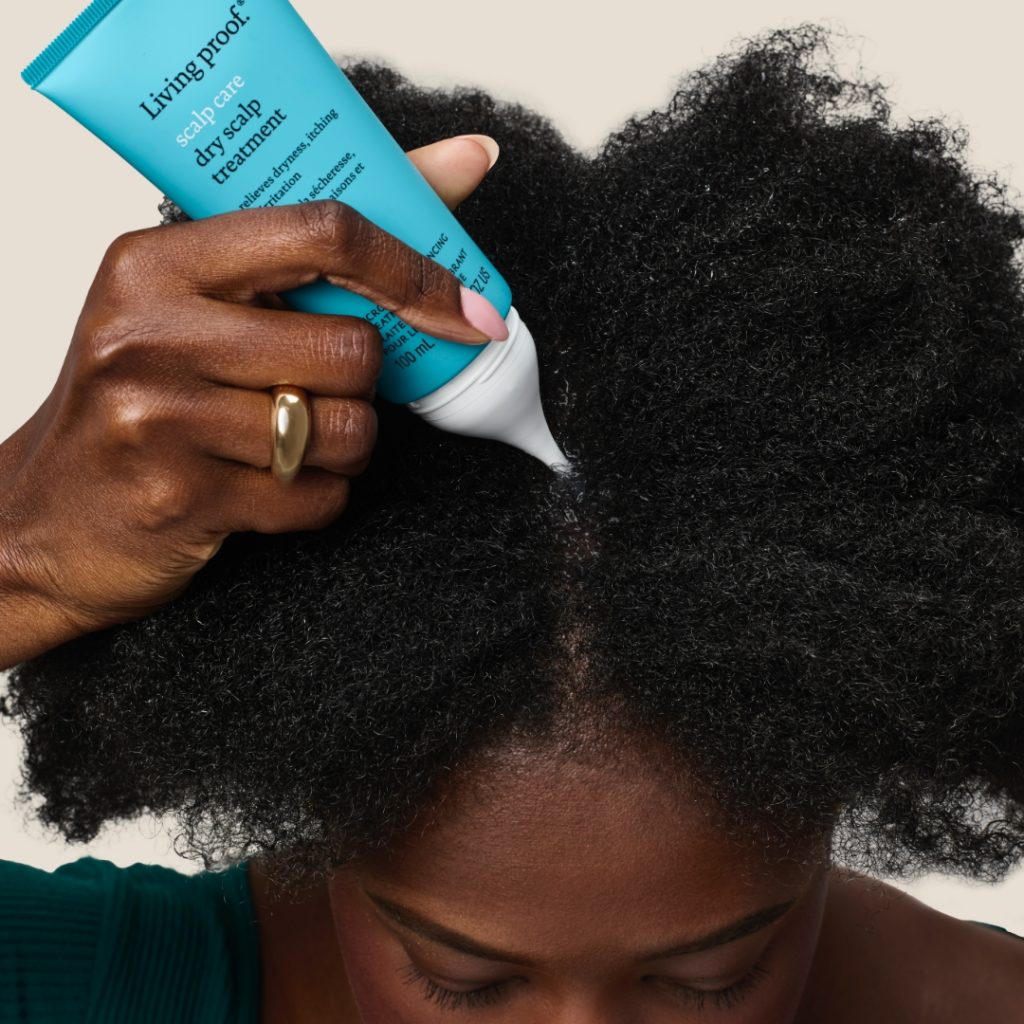
Now that you’re aware of the signs and causes of dry scalp, it’s time to tackle the problem head-on by exploring how to moisturize your scalp. Let’s dive into the top ways to nourish your scalp and prevent dryness and irritation.
Step 1. Use a moisturizing shampoo and conditioner.
Using a hydrating shampoo and conditioner can help replenish lost moisture and restore your scalp’s natural balance.
Step 2. Apply a scalp treatment.
Applying a targeted scalp treatment can help soothe and rebalance the scalp’s microbiome while providing lasting hydration.
This is how our Dry Scalp Treatment works: It features our vitamin B3-based Microbiome Balancing Complex, which is the key to restoring balance for your scalp. It’s like a probiotic for your hair. Plus, it contains a hyaluronic acid-based molecular patch that instantly soothes scalp irritation and delivers sustained hydration. This ingredient combination works to provide instant hydration and lasting relief from an itchy, dry, irritated, and flaky scalp.
Step 3. Apply oils.
Natural oils — such as coconut and jojoba — can be beneficial in moisturizing the scalp. However, it is crucial to note that essential oils may contain allergens and may not be suitable for everyone, as they can cause an inflammatory response. Learn about other types of hair oil and how they can help keep your hair healthy.
Step 4. Massage your scalp.
Massaging your scalp can help promote blood flow and stimulate the production of natural oils, aiding in scalp hydration.
Step 5. Apply aloe vera.
Aloe vera is a natural humectant, meaning it can help retain moisture on the scalp.
Step 6. Exfoliate your scalp.
Using a scalp exfoliator, such as a scalp scrub, tool, or even apple cider vinegar, can help remove buildup and reduce dry scalp flaking.
Customizing your scalp routine based on your hair type, texture, and specific needs is essential. Using a product like our Clarifying Detox Shampoo once a week can help remove buildup and dry scalp flaking while using the Dry Scalp Treatment daily can provide lasting hydration.
Give your scalp the TLC it deserves with Living Proof’s Scalp Care treatment options. Browse our collection now.
How to keep your scalp moisturized
Moisturizing your scalp is key in preventing dry scalp and achieving healthy hair. But how can you maintain optimal scalp hydration beyond the initial treatment? Here are some tips to help keep your scalp moisturized over time.
- Use Clarifying Detox Shampoo with a scalp brush — Once a week use of Living Proof’s Clarifying Detox Shampoo with a scalp brush can help remove buildup and dry scalp flaking, promoting healthy scalp conditions.
- Avoid frequent cleansing of the scalp — While it may be tempting to wash your hair every day, it’s important to avoid over-cleansing your scalp. Frequent shampooing can strip your scalp of vital oils and contribute to dryness. Every scalp is different, which is why it’s vital to determine how often you should wash your hair.
- Remove buildup — Buildup is what happens when products, pollution, or hard water “build up” on the hair. This leaves behind a greasy or cakey residue at the roots—or causes dullness and flatness. Buildup can block the oil glands that supply your scalp and hair with moisture, leading to dryness. Additionally, it can keep moisturizing ingredients that you supply to your scalp from getting where they need to go, exacerbating dryness even when you’re trying to treat it. To deal with these issues, use a clarifying detox shampoo once weekly, or as needed to remove buildup. Our Clarifying Detox Shampoo consists of a scalp soothing complex that balances hydration levels and reinforces the scalp’s natural barrier.
- Find the root cause — Identifying the underlying cause of your dry scalp is crucial for finding the right treatments. Whether it’s related to your environment or lifestyle, addressing the root cause can help keep your scalp healthy and hydrated.
- Choose the right hair products — Opt for sulfate-free shampoos and conditioners, as well as products that are free from harsh chemicals that can further irritate your scalp.
- Drink more water — Adequate hydration is key to maintaining healthy scalp conditions. Drinking plenty of water can help keep your scalp and hair hydrated from the inside out.
- Wear a hat or scarf when it’s cold or dry — Protecting your scalp from the elements can help prevent moisture loss and maintain optimal hydration.
In addition to these tips, Living Proof offers several products that can help keep your scalp moisturized between washes. Our Perfect hair Day™ Advanced Clean Dry Shampoo uses an enhanced powder-removal system that helps get rid of oil, sweat and other forms of buildup leaving your hair soft and shiny
.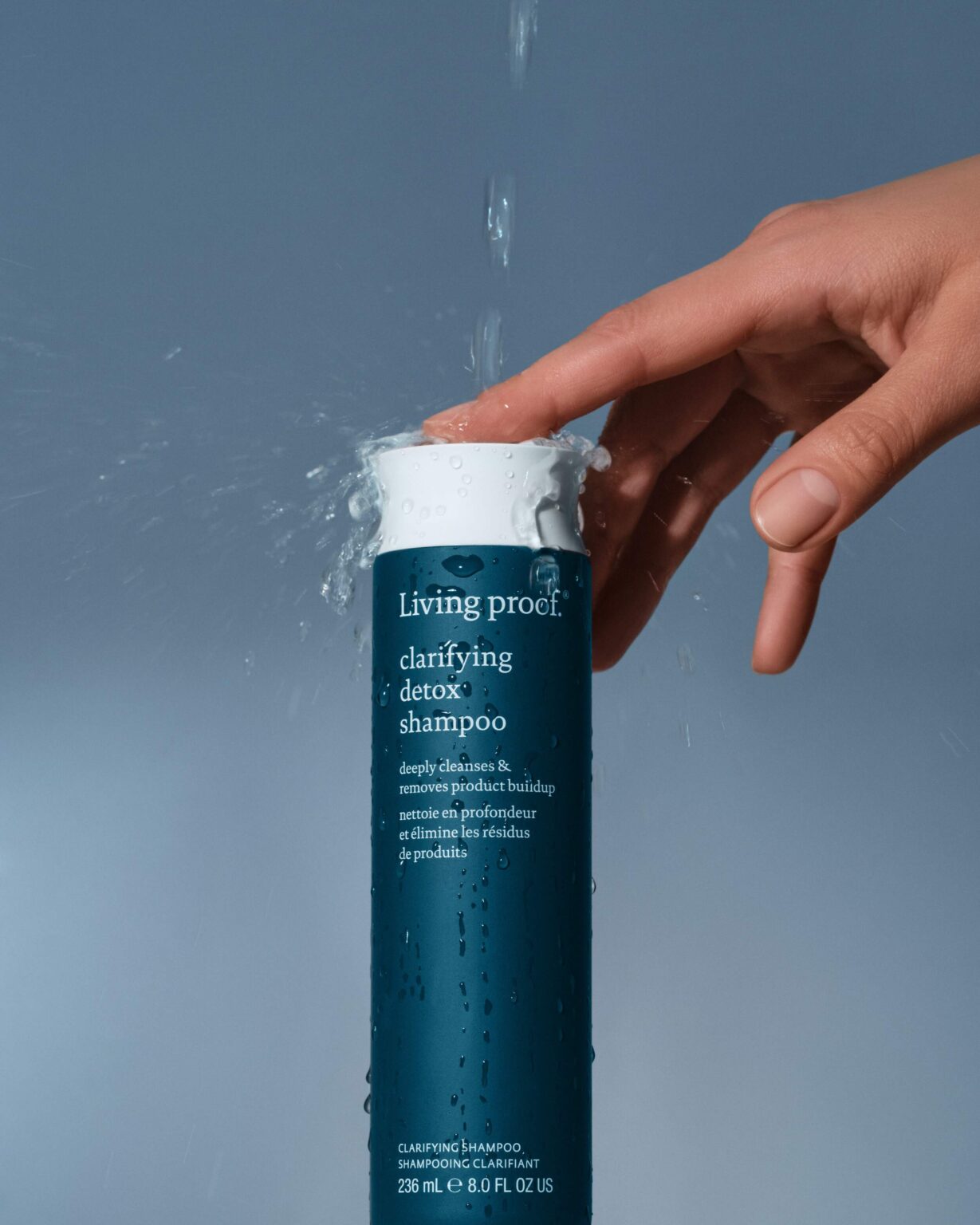
Can I moisturize my scalp every day?
If you struggle with dry scalp, you may be wondering if it’s safe to moisturize your scalp every day. The answer is yes! In fact, frequent moisturizing is recommended to keep your scalp healthy and hydrated.
However, it’s important to choose the right products for your specific hair and scalp needs. Applying coconut oil to your scalp nightly may seem like a good idea, but it can actually make things worse if you end up washing your hair more frequently due to greasy roots. It’s crucial to consider factors like hair type, scalp condition, and personal preferences when deciding how often to moisturize your scalp.
For those with dry or sensitive scalps, daily or every-other-day moisturizing may be necessary to prevent dryness and irritation. Those with oily scalps may be able to get away with less frequent moisturizing but should still make sure to keep their scalps hydrated.
At Living Proof, we offer a range of moisturizing products for every hair type and concern. Whether you have straight, wavy, or curly hair, we have something for you. Our Advanced Clean Dry Shampoo is a great option for keeping your scalp clean, balanced, and conditioned, while our Dry Scalp Treatment provides long-lasting hydration for those with persistent dry scalp issues.
Moisturizing your scalp FAQs
How can I tell if my scalp is oily or dry?
If you’re unsure if your scalp is oily or dry, there’s a simple way to check. Take a look at the hair near your roots on a day when your hair is freshly washed. If your scalp is oily, you’ll notice an oily sheen at the roots, and throughout the day, your hair may look “piecey” or clumped together. On the other hand, if your scalp is dry, you may experience itching or flakiness.
What role do hormones and aging play in dry scalp?
As we age, our hormone levels change, often leading to a decrease in sebum production, which contributes to dry scalp. Hormonal changes during menopause and perimenopause can also lead to changes in scalp moisture levels.
What’s the best way to moisturize my scalp?
The best way to moisturize your scalp depends on your specific hair and scalp needs. Some effective methods include using a moisturizing shampoo and conditioner, applying scalp treatments, massaging your scalp to promote blood flow, and applying natural oils.
The final word: happy scalp, happy hair.
The health of your scalp is a vital component of the overall health and appearance of your hair. By moisturizing your scalp regularly and identifying the root cause of dryness, you can prevent uncomfortable symptoms like itching, flaking, and tightness.
To help you achieve Your Best Hair™ yet, Living Proof offers a range of scalp-friendly products formulated to nourish and hydrate your scalp. From our Dry Shampoo to our Triple Bond Complex, our hair products are scientifically designed to deliver results.
Ready to start your journey to healthier hair? Explore our range of scalp treatments and haircare products online today. If you’re still unsure which products are right for you, take our Hair Quiz to receive personalized recommendations tailored to your hair type and needs.
